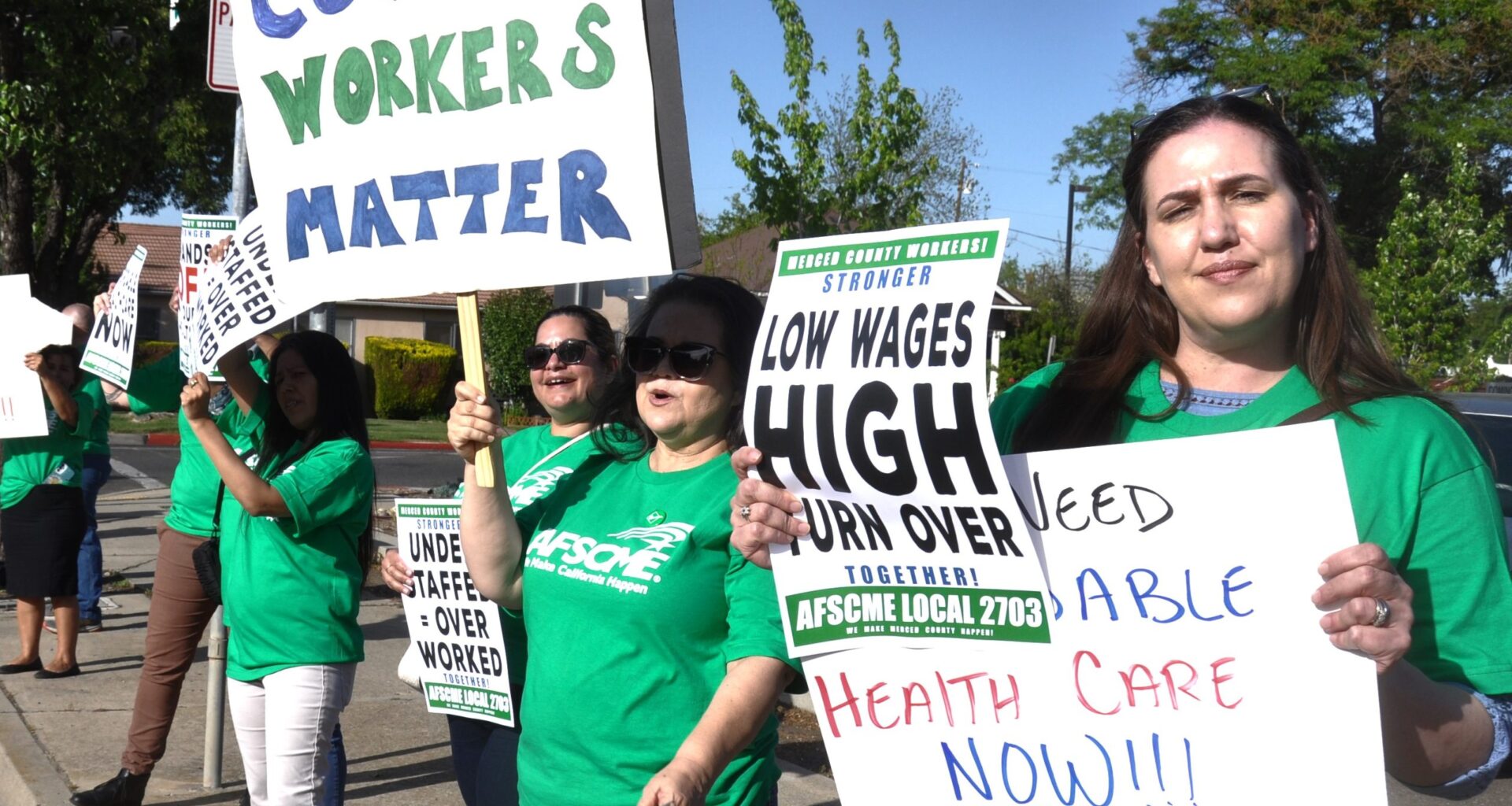Reading Time: 3 minutes
Recently, Merced County affirmed its intention of assessing costs of health care benefits for county workers. The issue of skyrocketing premiums has persisted for years, leaving some workers feeling like they’ve become the “working poor of Merced County.”
I’m not here to discuss whether the Board of Supervisors has done enough to provide benefits to its workers, or if county workers are asking for too much. I’m here to highlight that both parties are trapped by a predatory industry that mercilessly increases premiums year over year, leaving both the county and its staff in a bind.
What gets lost in discussions around health care benefits is the actual trigger for premium increases: private health insurance companies. Neither Merced County, nor any of the cities within, choose to raise health care premiums for their workers. Local elected officials don’t decide what the insurance companies charge. Premiums are increased by private insurers, who then leave the rest of us at the table to negotiate what percentage of the new cost will be shared by the public agency or the worker.
The Affordable Care Act (ACA) included a medical loss ratio (MLR), which requires health insurers to spend a minimum percentage of their premium revenue on health care services. In other words, the MLR capped the percentage of revenue from premiums that insurers could keep as profit. Since insurers can only keep a certain percentage of the pie, they ensure their pie gets larger every year.
Public agencies, such as Merced County and the cities within, are not for-profit businesses. They do not have the ability to significantly raise revenues to deal with skyrocketing premiums. In theory, they could attempt to raise taxes. We all know that’s not feasible.
This leaves two options: major budget cuts or passing over costs to workers. Both come with a significant price. Meanwhile, health insurance companies run out the door with record levels of profits, raking in more than $371 billion in profit since 2010.
For context, the final budget for Merced County in FY 2025-26 is $1.12 billion.
In spite of outrageous profits and payouts to shareholders, insurers are denying more medical claims. The pain is being felt not just in Merced County, but all across California and the broader United States. In 2026, health insurance premiums will see the largest rise in 15 years.
These increases are not sustainable for public agencies or their staff, and the issue calls for an overhaul of the broken health care delivery model. Fortunately, we have a solution – single-payer.
A single-payer health care system is a system in which one entity – usually the government – funds and administers health care for all of its residents.
A 2022 report from the Congressional Budget Office found that the implementation of a nationwide single-payer health care system nationwide would:
● Increase wages
● Eliminate household health insurance premiums
● Reduce administrative expenses in the health care sector
● Increase economic productivity
● Improve efficiency in providing health care
● Increase labor productivity as people’s health outcomes improved
There is state-level support as well. Through the passage of SB 770 in 2023, the California state Legislature explicitly endorsed a health care system with “unified financing, such as a single-payer health care system.” Within the bill, the Legislature claimed that the state could “save more than $500 billion over the next decade if a unified health care financing system is implemented.”
The evidence is clear: A single-payer health care system would massively reduce costs, increase wages, ensure universal access to affordable care, and most importantly, save lives.
This is a home-run policy solution to the health care crisis, one that would eliminate the tremendous strain placed on public and private institutions, as well as their workers.
I don’t want to be lectured about “socialism” unless it’s a principled argument that would also endorse the elimination of publicly-funded police, fire, and education services. No one cries about socialism when we publicly pool funds to hire police officers or build a fire department.
Implementing an effective single-payer system is not a matter of feasibility. It’s a matter of political will – not just from elected officials, but from workers, unions, and private industry – all whom stand to benefit.
Health insurance premiums will spike again in 2026. We can keep squabbling about what share of these hikes should be covered by our county or its workers, or we can push to dismantle the industry that continues to prey upon our health and leave us pointing fingers at one another.
Public dollars should not be spent subsidizing the profits of rapacious, for-profit health insurance companies. They should be allocated towards providing quality, affordable health care by the people, for the people.
Japjeet Singh Uppal is a Livingston City Councilmember.
Like this:
Like Loading…
Related

